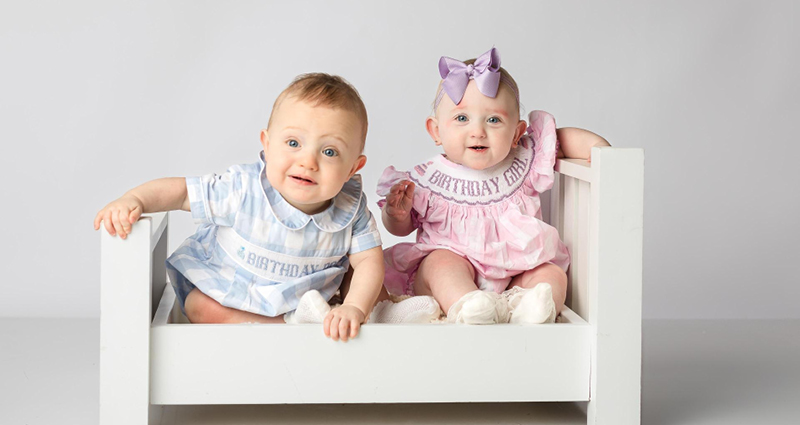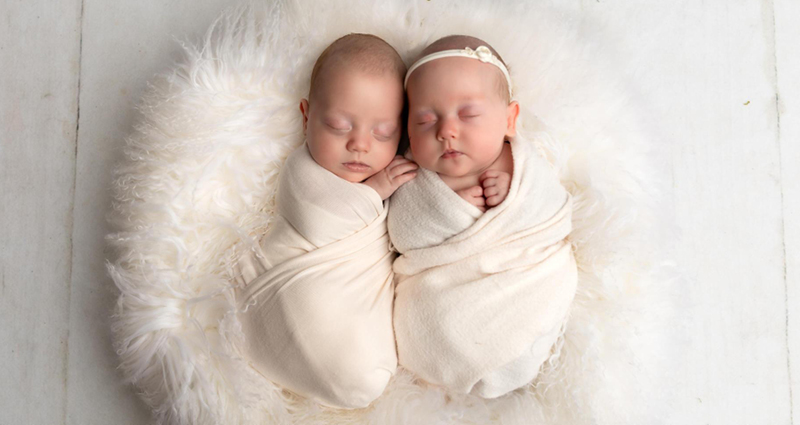When a baby graduates from the NICU, the journey isn’t over. Life has just begun.
That’s why the Neurodevelopmental Clinic, a collaboration between Our Lady of the Lake Children’s Health and Woman’s Hospital, exists: to give NICU graduates the specialized care and support they need to thrive.
For nearly 20 years, this clinic has been a home for families navigating life after the NICU. From tracking milestones to connecting children with therapists, it ensures babies born too soon, or too small, don’t just survive, but flourish.
A Doctor’s Vision Becomes Reality
The clinic was first championed by Charlotte Hollman, MD, a pediatric neurologist long affiliated with Baton Rouge Clinic, passionate about making sure NICU graduates had the right support long after hospital discharge. Dr. Hollman is now retired but returns to the Woman’s Hospital NICU as a baby cuddler.
From the beginning, the clinic has welcomed families from every background. “It’s always been about what’s best for the kids in this community,” says Steven B. Spedale, MD, FAAP, neonatologist and founder and president of neonatal team Infamedics.
Early on, dedicated NICU nurses staffed the program, and every child received a full developmental workup. Babies who needed therapy were quickly connected with occupational and physical therapists. For parents, that meant peace of mind and a clear path forward.
A True Baton Rouge Partnership
The Neurodevelopmental Clinic is a unique collaboration between two health organizations who share one priority: children.
“For years, Woman’s and Our Lady of the Lake have worked together to bring pediatric subspecialists to Baton Rouge so families don’t have to travel far for care,” Dr. Spedale says. “The clinic is a perfect example of what can happen when we put patients first.”
Located on the Woman’s Hospital campus , the clinic has grown into a team-based model. Neurologists, therapists and nutritionists all come together under one roof to care for children, many of whom were born weighing less than one kilogram, or 2.2 pounds.
“These are complicated babies,” Dr. Spedale says. “They deserve time, expertise and a place that feels like home. That’s what the clinic provides.”
The Next Generation of Care
After years of leadership from Dr. Hollman, the clinic is now guided by three pediatric neurologists from Our Lady of the Lake Children’s Health: Chad Manuel, MD; Joy Lorenzo, MD; and Yash Shah, MD.
Dr. Spedale, who has worked alongside them in the NICU and clinic, is quick to praise their impact.
“They’ve done a great job in the NICU and in the community,” he says. “They’re young, energetic and incredibly personable. Families connect with them because they not only know the medicine; they understand what it means to be parents themselves.”
This continuity, having the same doctors caring for babies in the NICU and later in the clinic, makes a difference. Parents don’t have to start over with new providers; instead, they see familiar faces who already know their child’s journey.
What Families Experience
Families usually visit the clinic when their baby is just a few months old. From there, specialists follow them closely until age three, helping parents track development, answer questions, and connect with therapies if needed.
One of the biggest advantages is consistency.
“When these babies come back to clinic, they’re not seeing strangers,” says Dr. Spedale. “They’re seeing doctors who walked alongside them in the NICU.”
Families Who Thrive
Two local families know firsthand how important that continuity can be. Their babies were born too soon, facing uncertain futures in the NICU. Today, they are thriving thanks to the support of both Woman’s and Our Lady of the Lake Children’s Health.

Stetson & Ruby
For Laramie and Mark McMichael, their journey into parenthood was anything but typical. Their twins, Stetson and Ruby, arrived at just 27 weeks, Stetson weighing 2 pounds, 9 ounces and Ruby 2 pounds, 3 ounces, after a complicated pregnancy.
“The NICU was a blur,” Laramie recalls. “Ruby had NEC, which was terrifying. Stetson struggled with reflux at the end. We were learning how to be parents to one, let alone two, medically fragile babies.”
Despite the challenges, the McMichaels found comfort in the consistent care and support of their NICU team. Nurses became part of their extended family, providing reassurance and expertise during the scariest moments.
Once the twins were discharged, the Neurodevelopmental Clinic became a critical lifeline. “Even if you don’t think your baby needs PT, OT or speech therapy, having a team evaluate them and guide us made a huge difference,” Laramie says. “The clinic visits are fun for the kids. They play and explore, and Dr. Shah goes over milestones with us. It wasn’t scary; it was supportive.”
Through the clinic’s follow-up, the twins began therapies early, helping them reach their developmental milestones on their own timelines. Today, at 19 months, Ruby and Stetson are thriving — walking, talking and exploring the world in their own ways.
“Everyone involved — from the NICU to the clinic — has been incredible,” Laramie says. “We can’t thank them enough. The continuity of care and seeing familiar faces who know our kids’ histories, has made a huge difference for our family.”

Ellie
Ellie is another early arrival who benefited from the collaborative Neurodevelopmental Clinic. Ellie’s parents, Heather and John Ray, know firsthand the challenges of caring for a baby born at just 23 weeks. After six months in the NICU and early medical hurdles, Ellie is now thriving.
“She’s honestly a little miracle,” says her mom, Heather. “She’s had to work harder at everything, from walking to language, but she’s made it through so well.”
Heather credits the clinic with helping Ellie stay on track. “The NICU nurses did early screenings, and Dr. Shah has always been thorough, optimistic and so proud of her. The therapies, OT, speech and feeding, started right after discharge, which was a blessing. It set her up for success.”
Now 2 years old, Ellie is a spirited toddler working on her language skills and keeping up with her older siblings.
“Dr. Shah shows parents that preemies can succeed,” Heather says. “It takes time, it takes extra effort, but you’ll get there. The clinic gave us hope and guidance when we needed it most.”
Bridging the NICU to Brighter Futures
Both families’ stories highlight the impact of consistent, specialized care that bridges the NICU and home life, ensuring children born early or with medical complexities have the support they need to thrive.
Nearly two decades in, the Neurodevelopmental Clinic continues to reflect the best of Baton Rouge healthcare: collaboration, compassion and commitment to children’s futures.




